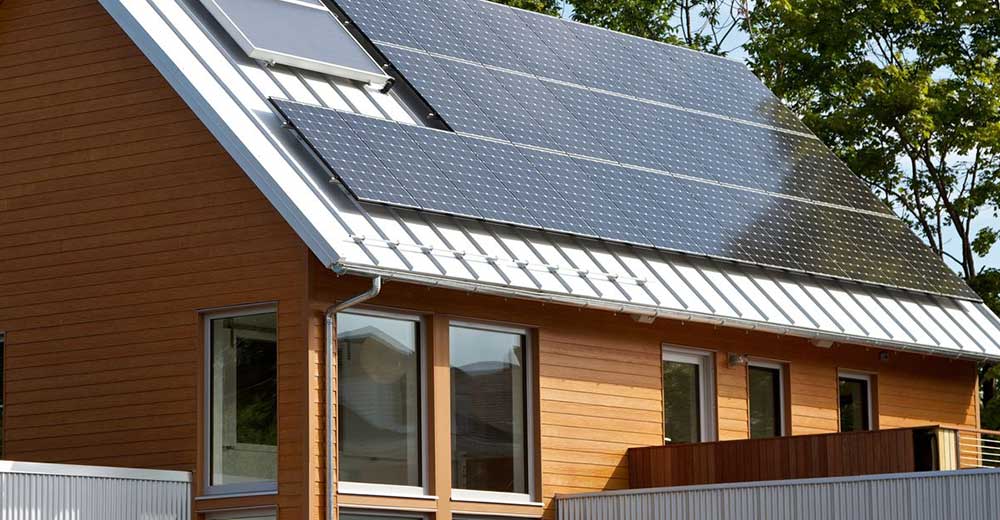Inverters are typically not the first thing you think of when thinking about going solar, but they’re an important part of every installation. How do you configure inverters in your system? What size do you need, and how do I implement one that’s perfect for my solar installation?
In off-grid systems, a charge controller will send the power to a battery bank and then an inverter will convert the DC to AC for the home. Off-grid inverters, known as stand-alone inverters, need a battery bank to function. When selecting off-grid solar inverters, it is essential that the output power of the inverter is large enough to support the loads of the system. Many off-grid solar inverters include a charger in order to replenish the battery.

If you have an off-grid system, you’ll most likely be choosing between installing a pure sine wave inverter and a modified sine wave inverter.
Pure Sine Wave Inverters: Pure sine wave inverters are capable of producing smooth quiet, and reliable electricity to operate appliances and electronics without any interference. Like its name suggests, pure sine wave inverters produce current in a pure sine wave shape. Renogy sells a range of pure sine wave inverters of varying capacities to fit your solar installation and your energy needs. Renogy inverters also provide overload protection for both DC input and AC output to prevent damage to the components and the unit.
Modified Sine Wave Inverters:In modified sine wave inverters, the polarity abruptly switches from positive to negative versus a true sine wave. When looking at the wave, it has a stair-step, square pattern, where the polarity is flipped back and forth. That choppy wave can negatively affect more delicate, sensitive equipment. If you have medical equipment you need to power, such as a CPAP machine, you won’t be able to use a modified sine wave inverter. Additionally, in many cases, you’ll hear a hum with devices attached to a modified sine wave inverter. However, with simple devices and appliances, modified sine wave inverters typically do the job.
If you’re looking to save some money, modified sine wave inverters can be purchased and used in simple systems without sensitive electronics. If the electronic doesn’t have an AC motor and isn’t a delicate piece of medical equipment, you may be fine. Old tube tvs, water pumps, and phone chargers usually operate ok with a modified sine wave inverter.
Appliances like refrigerators, microwaves, and compressors that use AC motors won’t run as efficiently on a modified sine wave inverter. Some fluorescent lights will also not operate quite as bright, and some may buzz or make humming noises.
Solar inverters come in a range of different sizes. Like solar panels, inverters are rated in watts. Because your solar inverter converts DC electricity coming from the panels, your solar inverter needs to have the capacity to handle all the power your array produces. As a general rule of thumb, you’ll want to match your solar panel wattage. So if you have a 3000 watt solar panel system, you’ll need at least a 3000 watt inverter. Need help deciding how much solar power you’ll need to meet your energy needs? Use the Renogy solar calculator to determine your needs.
Renogy has pure sine wave inverters ranging in size from 700 to 3000 watts. Inverter chargers are also a great option for those living off-grid who may also connect to shore power occasionally. In addition to converting DC to AC, the Renogy 2000W Pure Sine Wave Inverter Charger can charge and maintain a battery bank when connected to shore power.
If you live in a remote area or on the open road without reliable and affordable access to the grid, off-grid solar can be a great way to meet your energy needs. Having an understanding of how inverters are configured and used in off-grid systems will set you on the right path toward building a safe, efficient, and powerful solar installation to meet all your energy needs.